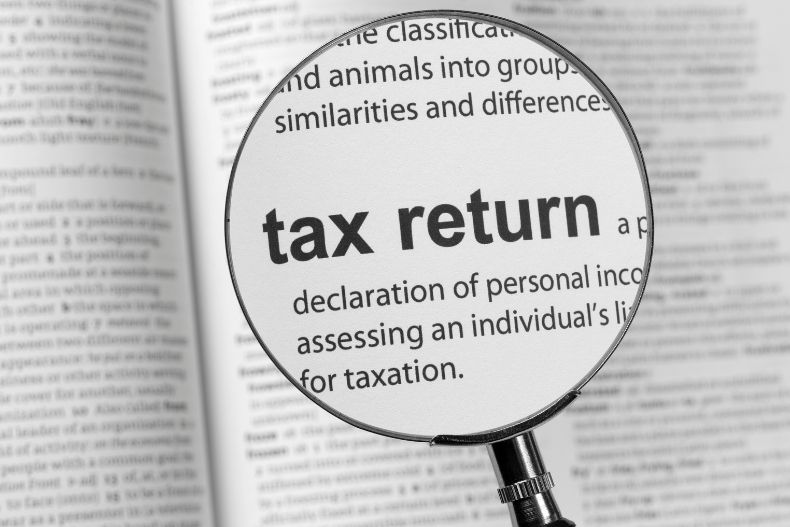There is no need to worry if you have not filed your tax returns for several years. According to an estimate, there are more than 7.5 million taxpayers who don’t pay their taxes regularly. People who miss filing their returns in a year think they have already missed once so what is the harm if they continue to give it a miss again.
These individuals try to reassure themselves that perhaps they will go unnoticed by the IRS. Some think they should not invite the wrath of the IRS by filing returns again as they will be asked uneasy questions. If you have unfiled tax returns, keep in mind that the IRS does not forget or forgive individuals like you.
Let us find out in this article what happens if you have unfiled tax returns.

Scenario if You Have Unfiled Tax Returns And Owe Money to The IRS
It is regarded as a misdemeanor by the IRS if someone owes tax and does not file his returns. He can be sent to prison for up to a year for this misdemeanor. However, in most cases, the individual is slapped with some penalties and asked to pay interest on the taxes he owes to the IRS. This penalty adds up pretty quickly and you end up paying much more than you owe to Uncle Sam. If you don’t want to be treated like a criminal and also don’t like this system of paying a penalty, it is always a good idea to file your annual returns on time year after year. The late filing fee and the penalties charged by the IRS can be pretty severe.
The IRS usually begins with a notice to the individual who has defaulted on his tax returns. The defaulter is sent a second notice after 30 days if he does not respond to the first notice. The collection process is not initiated before the defaulter has received two notices at his mailing address. Things can get pretty ugly if you choose to ignore these notices. The IRS can freeze your bank accounts and also put a lien on your house.
How to Avoid Penalties or Reduce Them
While penalties and interest on penalties quickly add up with time, you can get a reprieve from the IR if you have a reasonable reason for not filing your returns. Some reasons for which taxpayers have been waived penalties slapped for not filing tax returns on time are death, fire, serious illnesses, and natural disasters. This year, in particular, the IRS has been particularly lenient on defaulters on account of the Covid-19 pandemic. However, if you wish to avoid paying penalties, you need to provide the IRS with the necessary documentation to bolster your claims.
Substitute For Return (SFR)
Many men and women think that the IRS has no way of knowing how much they owe to Uncle Sam as they have not filed their returns for so many years. Indeed, the IRS does not have an idea of how much you are earning but it files a Substitute For Return on behalf of defaulters like you. There are no deductions or exemptions for you in this SFR as they don’t have your recent data available to them. They will send you a notice and ask you to accept your tax debt as calculated by the IRS. If there is no response from you, they will send a notice of deficiency. Once this notice has been served, the IRS is free to initiate the procedure for the collection of taxes. They can freeze your bank account and even put a lien on your house to recover their dues.
How to Get Back on Track With Unfiled Returns
Remember that you are required by law to file your tax returns every year. The first step in getting back on track is to contact the IRS. It is only by establishing a contact that you will know if the IRS has started investigations in your case or filed a tax return on your behalf (known as SFR). You can request some more time to file your returns if you come to know that they have filed returns on your behalf. The next step you need to take is to know for how many years you must file your returns.
There is no need to go as far as 10 years back in your attempt to get back into the good books of the IRS. There is a general rule for the IRS according to which taxpayers can get back into the good books of the IRS if they file back tax of 6 years to the agency. In some cases, IRS may ask the individual to file back returns for more than 6 years. Some reasons why the IRS may ask for more than 6 years of back returns are as follows.
- There is a history of non-compliance from the taxpayer
- The decision can have an impact on future compliance
- If the IRS feels that the individual has illegal sources of income
- If anticipated tax revenue is higher than the cost of recovery
You are well within your right to pose a question if the IRS asks you to files back returns for more than 6 years. You can also remind the officer about the general rule of 6 years.
Make Sure that you File Accurate Returns
Once you have contacted the IRS and enquired about your status, you must prepare accurate returns based upon your income history. Also, you should keep in mind the penalties and the balance tax amount owed to the IRS in your return. If you are not able to pay the money, you can always reach an agreement with the IRS regarding the payment plan. Besides installments, the IRS can also work out a formula under Offer in Compromise.
Trying to continually evade the IRS is no solution if you have unfiled tax returns. It can have serious repercussions for you if the IRS initiates a process of recovery from you. Be proactive and contact the IRS to get back on track with your back tax returns.











